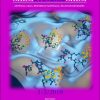Research in the TuttleLab is focused on the concept of reducing molecular search spaces. The reduction of molecular search spaces involves the use of computational methodology to inform, focus and drive the direction of molecular research. The group works in close collaboration with experimental colleagues to ensure the results from our design work are able to be directly implemented in a practical laboratory. The process of reducing molecular search spaces involves three phases: (1) rationalising and understanding existing systems; (2) isolating the governing molecular processes; and (3) predicting new systems with enhanced/desirable properties and reactivities. A variety of different methods are used in pursuit of this goal, including ab initio, DFT, semi-empirical, MM, coarse grain and hybrid QM/MM methodologies.
News From the Lab

New PhD and Undergrads join the Lab
Three new PhD students have joined the TuttleLab in 2019. Alex van Teijlingen who will be looking at using AI to help reduce the molecular search space of larger peptide sequences; Robert Cordina who is looking at using molecular simulations to understand chocolate; and Krystian Kolodziejczak who is working to continue the successful collaboration with […]

Allan Defends his PhD
Congratulations to Allan who successfully defended his PhD work and passed his viva with flying colours. His external examiner (Stuart Macgregor) and internal examiner (Marc Reid) both commented on the excellent contribution that Allan had made to the literature in understanding reaction mechanisms and applying density functional theory to challenging organic reactions. Allan’s thesis “Searching […]

Daniela’s Successful PhD Defence.
Congratulations to Daniela who successfully defended her PhD thesis on 17th July at the ASRC in New York. Daniela is the first student on the joint CUNY/Strathclyde graduate program to complete her PhD. Daniela’s thesis “Minimalistic peptide-based supramolecular systems relevant to the chemical origins of life” was well-received by the examining committee who complimented her […]

Daniela’s paper featured on front cover!
Daniela Kroiss’s paper on the discovery of dynamic ATP-peptide complexes has been featured on the inaugural issue of the journal ChemSystemsChem. ChemSystemsChem is an interdisciplinary journal publishing high-impact peer-reviewed research in out-of-equilibrium self-assembly, chemical networks and chemical ensembles with emergent properties, such as movement, communication and collective behaviour, working together in minimal metabolisms, artificial cells and […]








